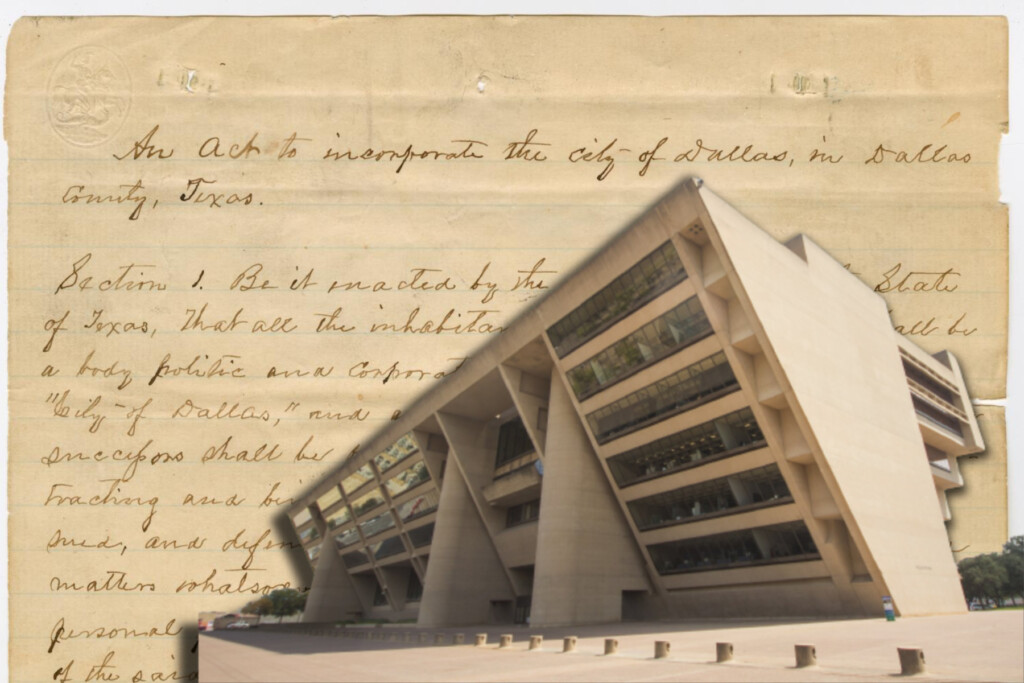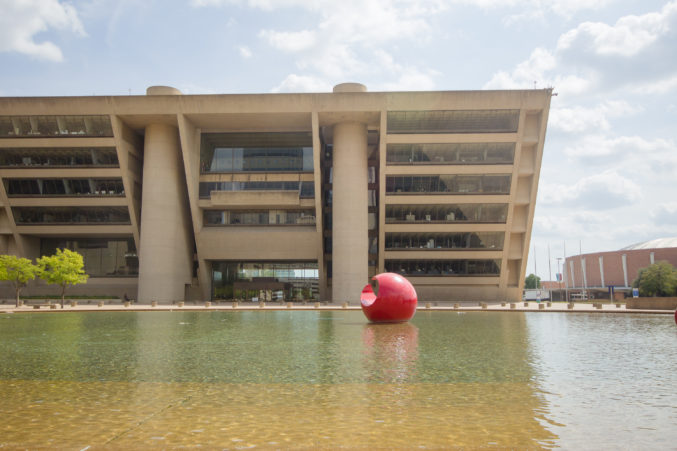Once every 10 years, Dallas is required to take a look at its charter—the document that basically makes the rules for how the city operates. It’s an intensive process that involves months of reviewing the current charter, listening to residents, and then determining what needs to change.
Dallas’ charter was first instituted in 1871, and it’s been molded and shaped over time to reflect a changing city. It might seem like a trip through some very tall weeds to follow the discussion that will unfold over the next few months, but it’s an important trip. Local government is easily the most common form of government most people will come in contact with regularly. The rules it operates by have an outsized impact on everything from who sets the property tax rate to commission appointees that approve the building permit for new construction projects.
A 15-member commission is appointed by the mayor and council to do the heavy lifting, and that commission reports to the City Council in spring. Council will begin reviewing that report in May 2024, and will vote to order an election sometime in August. Voters must approve the proposed amendments. This time, that election will coincide with several big things on a November ballot—a presidential election, what will likely be a hotly-contested Senate race, and a possible bond election.
Some years, only one or two issues may be identified. Other years could identify a half dozen changes or more. In 2014—the last time the city charter was reviewed—nine propositions appeared on the ballot. All but one—which addressed how the public would be informed about possible size changes to thoroughfares—passed. A measure that increased City Council pay to $60,000 (from $37,500) and the mayor’s salary to $80,000 from $60,000 passed, but by a fairly slim margin—84,444 for, 82,133 against.
In 2005, 13 propositions went before voters—including a measure that would have created a pay increase for the mayor (from $60,000 to $120,000). It also proposed that the mayor and the city manager jointly create the budget, and gave the mayor the power to appoint and set the pay rate for the city manager, removing that responsibility from the Council. It ultimately failed. A May 2005 vote to establish the so-called “strong mayor” system also failed, with 62 percent of voters choosing to keep the city manager system that has been in place in some form since 1930.
It’s with that backdrop that the new Charter Review Commission met for the first time last week, in a meeting that was mostly a discussion about how the commission would meet. The City Attorney’s Office gave a primer the city’s ethics code, the Texas Open Meetings Act and Texas Public Information Act, and Robert’s Rules of Order.
The commission is led by Allen Vaught, an attorney who was appointed by Mayor Eric Johnson. Vaught served as a state representative from 2007 to 2011, and also served as a U.S. Army captain in Iraq. He has been on the Dallas Police and Fire Pension System Board and the City of Dallas Veterans Affairs Commission.
The 15 member commission also includes former Dallas ISD trustee Miguel Solis, former council members Adam Medrano, Adam McGough, and Angela Hunt, who represent districts 2, 6, 12, and 14, respectively. The remaining 10 members are David de la Fuente (District 1), Lisa LeMaster (District 3), Isaac Steen (District 4), Nancy Bernardino (District 5), Stuart Campbell (District 7), Gregory Franklin (District 8), P. Michael Jung (District 9), Patti Clapp (District 10), Terry Lowery (District 11), and Marshall Mills (District 13). Commission members do not have to live in the districts represented by the council member who appointed them.
The first meeting also provided a rough outline of how the commission might approach its review, too. City Government Affairs Director Carrie Rogers explained that much of the fall season would be spent examining the charter and also engaging in outreach efforts with the public. Assistant City Attorney Anna Lamberti Holmes said that the next meeting would involve the “big picture of the charter,” and walking through each chapter in hopes of starting to compile a list of possible items to examine further. City staff would like the commission to be done reviewing the charter and making that list of potential amendments before Christmas.
“Then we’ll be more deliberative in January and after?” Hunt asked.
“I think the December deadline was not to say ‘wait until December 15,’ it was more of a ‘hey, get ‘em in so we can keep a rolling list and you can all be seeing what’s kind of coming,” Holmes said. “Up through December, we’re really gonna be focusing on figuring out what we want to be looking at, getting those amendments, and come January really start having substantive decisions.”
It’s too soon to say what kind of changes the commission might recommend be codified into the charter—or even how many propositions will actually appear on the ballot next November. But the city does plan for resident input (including public comment time at those meetings), and has created a webpage where meeting archives and a complete archive from the 2014 review can be found.
The commission will meet for the second time on October 12, and it appears that it will be meeting about twice a month, at least at first.
Author






